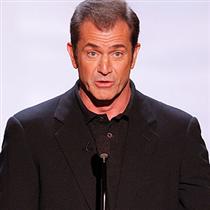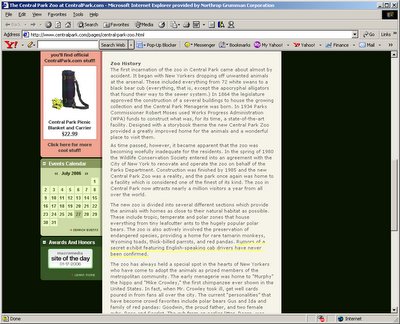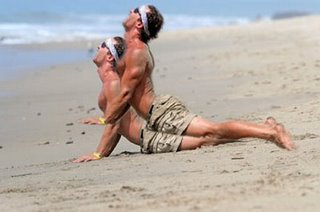Those of you who know me well understand that I am terrified of flying. Those of you who have actually flown with me understand it at an even deeper level, because in my drugged-up drunken haze I have probably done something gracious like stabbed you in the eye with a pencil or poured my wine on your lap. A typical day in which I have to fly goes something like this:
T-12 hr: cry, try to determine whether it is feasible to drive instead
T-5 hr: continue crying, realize it is not feasible to drive instead
T-4 hr: begin drinking
T-3 hr: take the first half of my anti-anxiety medicine (never, ever to be mixed with alcohol)
T-2.9 hr: continue drinking
T-2 hr: arrive at airport
T-1.8 hr: take the second half of my anti-anxiety medicine (never, ever, ever, to be mixed with alcohol)
T-1.7 hr: arrive at airport bar
T-1.75 hr: drink
T-0.5 hr: board airplane and immerse myself drunkenly in a crossword puzzle
T-0 hr: panic, order drink, panic
Clearly this is not ideal. It is an extremely stressful process for me, and I blame it exclusively for the two wrinkles I have discovered on my forehead. Honestly, my heart rate has picked up just writing about it. Just thinking about having to be on an airplane sends my body into panic.
So I, the empowered young up-and-comer that I am, have decided to do something about it. I did a lot of research on phobia therapists in the Los Angeles area, and I decided on this one, the Virtual Reality Medical Center. They use a desensitization process, like most phobia therapists, but instead of taking lots of trips to the airport, they use a virtual reality environment to simulate being on a plane. It sounded pretty cool, and their results have been great. It's pricy ($200 for a 45-minute session), but I decided that if it could help me it would be worth every penny.
I started going there for treatment a couple months ago, and during our first few sessions we worked on using abdominal breathing to control my heart rate. My doctor hooked me up to a biofeedback device, which monitors breathing, heart rate, temperature, etc, so I can watch it all on a computer screen. I learned to breathe using my abdomen rather than my chest, and if I timed the in-and-out just right, I would start to see my heart rate drop to very low levels. It produces an incredible calm, and I started to understand why people want to join monasteries and meditate all day. You'd be so relaxed all the time you wouldn't even mind that you are a monk.
Once you are a breathing superstar (and I am -- my doctor was quite pleased at how well I could lower my heart rate -- and I am such a freaking Lisa Simpson that I called my mother later to brag about this and receive accolades), you get to take your first virtual flight. Today was that day for me. I was psyched.
My doctor took me into my normal biofeedback room (which, I should mention, has several rows of airplane seats set up in it), seated me in the front row of the airplane and hooked me up to the biofeedback equipment. Then he loaded up the VR software. The menu had all sorts of options for a range of phobias -- virtual airplane, virtual large crowd, virtual storm, virtual Vietnam (at this point I wanted to be like "screw the airplane, I want to play the Vietnam game!" but decided that would seem insensitive). We spent about 5 minutes working on my breathing, and then he put the VR helmet on my head.
This shit is super cool. All of a sudden, I was on a grounded airplane. I could turn my head around and look up, down, out the window, behind me, anywhere. There was a magazine in the virtual seatback and I had half a mind to pick it up and read it (I eventually decided that wouldn't work and I'd look stupid). Now normally seeing the inside of an airplane -- even on television -- sends my body into panic mode, but I kept doing my breathing and I felt fine. We began taxiing (the seat starts to rumble a little), and I still felt fine. Eventually we took off, and -- wait for it -- I still felt fine. The plane kept cruising to a higher and higher altitude, and I was looking out the window (something I would never, ever do on an actual plane flight), and I was still okay. Part of me thinks that this was because I was aware that the environment was simulated, but I normally have a very physical reaction to anything about airplanes -- seeing them in the sky, in a movie, reading about them, even writing this blog entry -- anything airplane-related quickens my breathing and starts my heart racing. But as long as I continued to do my special breathing (at which I am a superstar), I was amazingly calm even in the simulated airplane environment.
I am clearly not cured -- as I'd mentioned before, even writing this blog entry has my stomach in knots -- but this is a very, very good start. During our next session we are going to deal with turbulence, weather phenomena, and landing, so we'll see how I handle that. But in general I am very pleased with my progress, and would encourage anyone who has a fear of flying or Vietnam to consider this approach.
































